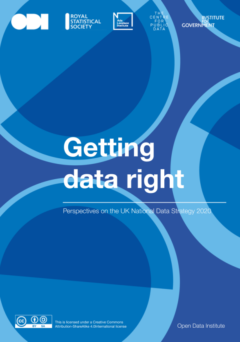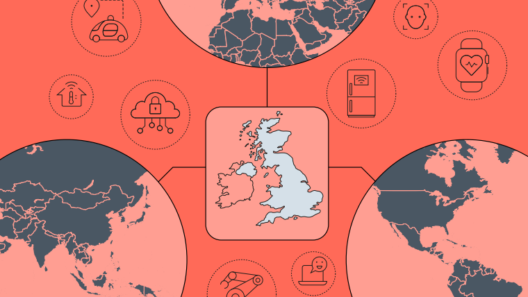Delivering responsible data through the National Data Strategy
Examining how the commitment to responsible data in the UK's National Data Strategy could be realised and what it misses.


Perspectives on the UK National Data Strategy 2020
Getting data right
Project overview
On 9 September 2020, the UK Government published its National Data Strategy for open consultation. The strategy aims to explore how the UK can enable better use of data ‘across businesses, government, civil society and individuals’ and centres on four pillars: data foundations, data skills, data availability and responsible data.
The Ada Lovelace Institute welcomed this consultation and supports the Government’s aim to ensure data is used responsibly and in the interests of people and society.
As part of our consultation response, we convened conversations across our networks. In partnership with the Open Data Institute, Royal Statistical Society, Institute for Government and Centre for Public Data, we coordinated an event series to discuss the strategy’s four pillars and consider how best to achieve the aims outlined in the National Data Strategy.
Getting data right: Perspectives on the UK National Data Strategy 2020, summarises the discussions from the ‘Getting data right’ series of workshops held with experts and practitioners. The report outlines how the four pillars of the Strategy could best be addressed and realised practically and sustainably.
We are indebted to all the participants in the event. In particular the presentations given by Seb Bacon, EBM Datalab, University of Oxford; Raegan MacDonald, Mozilla; Swee Leng Harris, Luminate; Dr Kristina Irion, Institute for Information Law (IViR), University of Amsterdam; Jesper Lund, IT Pol; Dr Sanjay Sharma, Brunel University; Mathias Vermeulen, AWO.
Responsible data
In the National Data Strategy, the term ‘responsible data’ means data that is handled in a way that is lawful, secure, fair, ethical, sustainable and accountable, while also supporting innovation and research.
To inform our response to the consultation, we aimed to stimulate discussion around whether the priorities outlined in the National Data Strategy will add up to responsible data practice and consider what might be missing.
One of the major challenges for responsible data is putting principles and aims into meaningful practice, so we ask how the Government might achieve its objectives with data, drawing on international practice and the latest research. Read our full consultation response.
To improve responsible data policy and practice, our future research will aim to explore and identify:
- Practical mechanisms to make algorithmic decision-making transparent
- Tools and research needed to monitor, evaluate and audit the social impact of data-driven systems
- How regulatory measures can facilitate responsible innovation
- Metrics to investigate if data regulation is fit for purpose when it comes to innovation.
Related content

Looking before we leap
Expanding ethical review processes for AI and data science research

Rethinking data and rebalancing digital power
What is a more ambitious vision for data use and regulation that can deliver a positive shift in the digital ecosystem towards people and society?

Regulate to innovate
A route to regulation that reflects the ambition of the UK AI Strategy

Ada’s National Data Strategy consultation response
A summary of the Ada Lovelace Institute's response to the National Data Strategy consultation